This is a complete guide to the safety precautions you need to take when travelling to South Africa. It is intended to guide foreign students as well as tourists and business travelers.
Whether you’ve enrolled at a flight academy to pursue your dreams of becoming a pilot or, are attending one of our many great universities, I welcome you to our beautiful country and hope that your stay with us will be enjoyable, exciting and fruitful.
South Africa is a multi-cultural and multi-racial nation with migrants from all over the world. The majority of immigrants come from African countries like Zimbabwe, the Democratic Republic of Congo, Mozambique, Ethiopia, Egypt and Nigeria. Other foreign nationals which you may encounter during your visit may include Europeans from countries like Portugal and Greece and Asians from countries such as India, Pakistan and China.
South Africa has one of the highest rates of violent crime in the world and sadly, many of these crimes are perpetrated against foreigners who are viewed as easy targets.
Foreigners who reside permanently in South Africa may not necessarily be seen as easy targets by criminals as they are very well aware of the crime problem in the country and therefore have the knowledge and skills to protect themselves and their property.
Foreigners who have just arrived in the country either for touristic reasons or for study purposes are, however, more vulnerable and are very often seen as easy targets.
It is advised that you read this guide and absorb the information contained herein prior to your arrival in South Africa. This will ensure that you are aware of the types of crimes that you could become a victim of and can help you prepare yourself for arrival. It will also help you better understand what type of mind frame you need to have in order to protect yourself from criminals and crime.
The highly publicized attack on Dutch tourists arriving in South Africa has brought a host of media attention to the instability of, and risk associated with, visiting the country. What many visitors and potential visitors don’t see is that these attacks are commonplace – particularly for visitors who have just arrived and are leaving OR Tambo (our international airport located in Gateng) as they are seen as easy targets.
The truth is that even residents who are well versed in safety and security in South Africa fall victim to these criminals on a regular basis. Although we cannot prepare for or prevent all crime, anyone visiting or planning to visit South Africa should read this guide and take the necessary measures to protect themselves and their possessions accordingly.
From hi-jacking to robberies and scams, visitors are seen as easy targets and are typically unable to identify a potentially dangerous situation simply because they have not been made aware of what to look out for.
Part 1: Airport Safety
- Making Arrival Arrangements
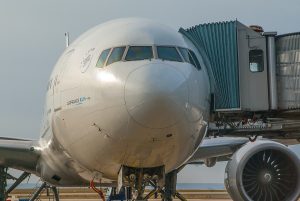 Before arriving in South Africa it is best that you prearrange both your accommodation and transport from the airport. If your hotel offers a shuttle service – always take the option. You must request that they provide you with the description of the individual who will be picking you up. This includes the name of the hotel, their address, their telephone number, the travel time from the airport to the hotel, the hotel logo and the name of the person they are sending to pick you up as well as the vehicle’s registration number. If you are studying at a flight school, you should request that someone from the school pick you up as they typically offer this service.
Before arriving in South Africa it is best that you prearrange both your accommodation and transport from the airport. If your hotel offers a shuttle service – always take the option. You must request that they provide you with the description of the individual who will be picking you up. This includes the name of the hotel, their address, their telephone number, the travel time from the airport to the hotel, the hotel logo and the name of the person they are sending to pick you up as well as the vehicle’s registration number. If you are studying at a flight school, you should request that someone from the school pick you up as they typically offer this service.
Although you can easily catch a bus or take a taxi to your hotel or accommodation it is best to avoid this as it opens you up to the risk of being scammed and robbed in what the press have dubbed “follow home robberies”. In addition, many private taxi services will charge you excessive fees which are sometimes 2 or even 4 times higher than they should be.
We use Uber in South Africa and, I personally think it is safer to use this service as opposed to a private taxi company for arriving at your accommodation. There are certain things, such as the violence between private taxi drivers and Uber drivers that you should be aware of and I will post an article on this topic shortly.
You can also rent a car, a preferable option for those who can drive as South Africa does not have strong public transport system. You should always pre-arrange your car rental before arriving, you can do so with my links below. In South Africa we have two major car rental companies, Avis and Budget, you can also use Travelstart to arrange flights and a car rental.
- Link to Avis Car Rental South Africa
- Link to Budget Car Rental South Africa
- Link to Travelstart South Africa
- Arriving in South Africa
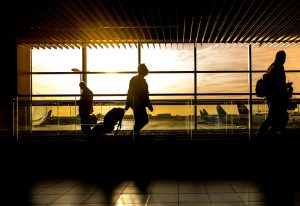
Upon arrival you should quickly make your way to the designated baggage retrieval area and collect your luggage. Any delay in retrieving your luggage will potentially give thieves an opportunity to steal your luggage or items in your luggage. When trying to collect your luggage you may come across some people who will try to help you retrieve your luggage. You can accept the help as these individuals work for the airport, however, you should rather get your luggage on your own and proceed to the arrival terminal as quickly as possible.
Don’t talk to strangers. This is very critical in ensuring that you arrive to your destination safely as many thieves, scammers and robbers will typically try to approach you and converse with you to get information. The “follow home robberies” typically start inside the airport where employees and spotters will identify targets and rely this information to people on the outside.
If someone approaches you to ask you a question simply say “no thank you” or “I don’t know” and go on about your business. Do not offer to help anyone for any reason whatsoever. Do not accept the offer to change foreign currency with anyone, take a lift with someone or share a taxi with someone. Don’t provide anyone with details of where you are going or how you are getting there. Do not open your luggage at the airport as you do not want anyone to see what you have in your possession.
- Exchanging Money

Although it is typical for most people to exchange money when arriving in South Africa, if you have no local friends or relatives with you it may be best not to exchange more than what you require for the first few days of your trip at the airport. When you exchange money you may be watched and thereafter targeted by criminals. If you have to make an exchange rather do this before going through the security and immigration check points. This limits the number of people that will see the exchange. Once you’ve passed the immigration almost anyone may be watching you.
Most major vendors will allow you to swipe your credit card and this may avoid potential danger. You can also visit your local bank a few days after arrival to exchange money if you need to. You can also ask your flight school if you can pay them in foreign currency.
This eliminates the need for you to make an exchange. You should also open a South African bank account and perhaps have your money transferred to this account after which the bank can automatically convert the money to our local currency. I will discuss this in more detail in part 5 of this guide.
- Leaving the Airport
Once leaving the terminal do not keep any cash, your wallet, camera, phone or jewellery in plain sight. Always keep your valuables with you – never leave your baggage out of reach as it can easily be stolen. Although not very common in South Africa, pickpocketers do tend to prey on tourists and you must ensure you keep a safe distance from all individuals.
The most dangerous part of your visit to South Africa will be leaving the airport. This is where tourists are typically hi-jacked and robbed, many times by people posing as police officers. It is very common for police officers to stop vehicles leaving the airport but, this typically occurs just after the vehicle has left the terminal. A police officer will most commonly stop the vehicle and ask for the licence of the driver. They will then check the license disk of the vehicle and, provided that everything is in order, let the vehicle drive off.
The “follow home robberies” occur when vehicles are followed from the airport and stopped further on, either by people posing as police or by unmarked vehicles that will cut your vehicle off and then proceed to hi-jack and/or rob the passengers. If you are driving a rented vehicle make sure that there are no markers that would identify your vehicle as being rented. Keep all windows and doors closed and keep any valuables out of sight. Please carefully read the anti-smash-and-grab guide as this will provide you with enough information to prevent this from occurring.
When being pulled over by police, the law says that you must obey the police and therefore you are required to stop. Although people posing as police typically have marked vehicles and police uniforms it is best to get yourself familiar with the uniform, vehicles and norms of South African police (SAPS) and thereby be better equipped to spot the fakers from the real deal.

Firstly it is HIGHLY unusual for police officers to be dressed in plain or civilian clothing. If you are being pulled over by people in police uniform accompanied by people in plain clothes this should already ring alarm bells. Also when police set up a road block there are typically more than one unit involved – you should be seeing 2 or 3 police cars on the side of the road and not just 1. If you believe that a police officer or unit is “fake” and they are trying to pull you over you have the right to drive to the nearest police station and this may very well save your life.
Part 2: Safety on the Roads
Whether you’re driving or using Uber you must always be present and aware of your surroundings when on the roads. The crimes that you need to be aware of are hi-jackings, smash-and-grabs as well as robberies.
- Safety when Driving
 Firstly when driving in South Africa you must, at all times, wear your seat belt. Apart from the fact that it is illegal not to wear a safety belt, South Africa has a high rate of road accidents and incidents and not wearing your seatbelt could put your life in danger.
Firstly when driving in South Africa you must, at all times, wear your seat belt. Apart from the fact that it is illegal not to wear a safety belt, South Africa has a high rate of road accidents and incidents and not wearing your seatbelt could put your life in danger.
You must never keep any valuables in your vehicle which can be seen – this includes everything from your cell phone to your laptop, wallet and handbag as you may become the victim of a smash-and-grab. Always keep valuables either in the trunk of your vehicle or hidden under you seat. It also goes without saying that in South Africa your vehicle could easily be stolen when parked anywhere from your home to a shopping centre parking lot and you must never keep any valuables inside the vehicle – especially your passport and money.
- Defensive driving
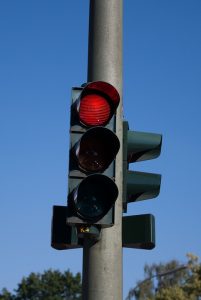 When stopping at a traffic light or stop sign you must always keep a look out around your vehicle. The best way to do this is by checking your side mirrors and rear-view mirror continuously until you pull off. This is required so that you can spot any individuals approaching your vehicle to either look what is inside and smash-and-grab or to hi-jack or rob you at gun point. If you are at a traffic light and you see an individual or individuals approach your vehicle it is best to drive off immediately, provided that you will not cause an accident and this is where the next two points will be very important.
When stopping at a traffic light or stop sign you must always keep a look out around your vehicle. The best way to do this is by checking your side mirrors and rear-view mirror continuously until you pull off. This is required so that you can spot any individuals approaching your vehicle to either look what is inside and smash-and-grab or to hi-jack or rob you at gun point. If you are at a traffic light and you see an individual or individuals approach your vehicle it is best to drive off immediately, provided that you will not cause an accident and this is where the next two points will be very important.
While most people stop their vehicles about half a meter from the vehicle ahead of them it is always safer to stop about a meter or a meter and a half from the vehicle in front of you so that should you need to pull away you can easily do so either to the left or the right – even if you have to drive onto the shoulder or emergency lane to do so. If you cannot drive away and you are held at gunpoint always comply with the instructions of the robbers – it is not worth your life to save your belongings.
When driving at night, extra caution is required and it is important that you do not unnecessarily wait at red traffic lights or stop signs. You should always slow down when approaching a red traffic light so as to keep your vehicle moving until the light turns green.
Do not speed towards the red traffic light and then sit and wait for an extended period of time – this is simply foolish. This means that you need to improve your skills at planning ahead and always keep the vehicle moving as far as possible.
You should also look out to ensure you are not being followed. If a particular car has been following you for an extended period of time – do not drive home, rather drive around for a bit until you are certain that you have lost them. If someone is following you always drive to your nearest police station.
- Planning Ahead
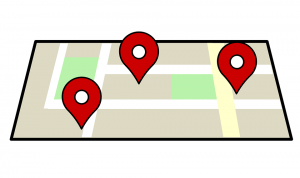 While having a GPS or navigation system on your phone is ideal you must always plan ahead and where possible, take someone with you when driving to a place that you do not know.
While having a GPS or navigation system on your phone is ideal you must always plan ahead and where possible, take someone with you when driving to a place that you do not know.
Since you are new to the country you will not know which areas are high risk and your GPS or navigation system may take your through dangerous areas best avoided.
To make sure this does not happen to you it is advised that you always go to new places during the daytime and plan ahead by mapping out your route and using the highways as far as possible. You can easily do this by adjusting the settings on our GPS or navigation system to avoid back roads.
Always make sure that you have plenty of fuel available to make it there and back and then some. Another important thing is to check your vehicle before leaving to ensure it is in a roadworthy condition and that you do not find yourself broken down on the side of the road.
You must check your fuel, oil, water and tire pressure as well as ensure you have a spare tire available before any trip. Always have the number of a road side assistance company and tow truck on hand in case that you do break down.
- Common Sense
When it comes to security in South Africa common sense goes a long way and you should always keep your eyes and ears on the road. Do not text while driving, talk on your mobile or even play your music too loud while driving as these distractions can cost you dearly. In addition, NEVER pick up any hitchhikers or offer any stranger a lift in your vehicle.
You must never stop to help anyone broken down on the side of the road as this is a common tactic used by robbers to draw victims to them. In South Africa the good smarten is simply something you cannot afford to be. If you feel that someone is in danger or needs assistance it is best to call the police and give them the persons location.
Part 3: Safety in Malls and Public Places
With regard to safety in public places one of the most prevalent crimes is that of muggings. This is a very common crime in the country and typically happens to people who are either walking alone or in a very small group in a secluded area. The muggers may be in possession of a firearm or a knife and will threaten violence should you not hand over your possessions.
The best way to prevent this type of crime is to always walk in groups and avoid walking in secluded areas or walking around at night. Never keep your mobile phone in your hand and avoid using headphones as this will attract muggers.
Another reason to avoid wearing headphones is that you should always be highly aware of your surroundings and headphones take a very important sense away from you – that of sound.
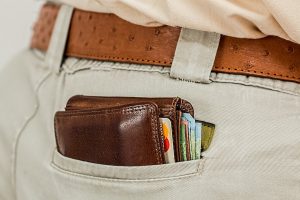 Malls, shopping centres and public places are generally safe but, this does not mean that you can let your guard down. You must always keep your hand bag and wallet or phone on your person. If you are at a restaurant never leave any possessions at your table when you go to the bathroom – your things will very likely be stolen. Also for the ladies, do not leave your handbag sitting on the back of your chair as people may be able to steal things from it without you noticing.
Malls, shopping centres and public places are generally safe but, this does not mean that you can let your guard down. You must always keep your hand bag and wallet or phone on your person. If you are at a restaurant never leave any possessions at your table when you go to the bathroom – your things will very likely be stolen. Also for the ladies, do not leave your handbag sitting on the back of your chair as people may be able to steal things from it without you noticing.
Rather keep your bag on the chair next to you, on the table or on the floor in between your feet where it is impossible for someone to get to without you noticing. If you are in a queue or a very busy shop or place always keep your handbag zipped closed and tightly on your shoulder with the zip in front of you.
In the case of a sling bag always keep it zipped closed and in front of you – never behind you. For men, always keep your wallet and phone either in your front pants pocket or, if you are wearing a jacket, inside of your hidden breast pocket. Keeping your wallet or phone in your back pocket is asking for trouble.
If anyone approaches you asking for change – for example a R200 note for two R100’s simply say no or I do not have any cash and walk away. These notes may be counterfeit. When paying for goods or services (even at a restaurant) never let your bank card out of your sight as card cloning is a very real and common crime in the country.
If you can help it, avoid going out at night unnecessarily. Many petrol stations which are open 24 hours a day are robbed at night and during the early hours of the morning when there are fewer people around. Try to do your shopping during the day and, if you plan on going out at night always fill up your tank before hand and go straight home afterwards. Always make sure that you are not being followed home and never drive into your driveway if there are any vehicles in close proximity to you or if you notice anyone in your immediate vicinity.
Part 4: Safety at Home
There are three types of major crimes that you need to know about which relate to safety at home. This includes home invasions, burglary and robbery.
- Home Invasions
 Home invasions are one of the most serious issues that we need to tackle when talking about security in South Africa. This crime is distinguished from burglaries in that during a home invasion the occupant or occupants are present in the home and witness to the crime. Many times they are threatened with violence or physically attacked. This crime also poses a risk of rape.
Home invasions are one of the most serious issues that we need to tackle when talking about security in South Africa. This crime is distinguished from burglaries in that during a home invasion the occupant or occupants are present in the home and witness to the crime. Many times they are threatened with violence or physically attacked. This crime also poses a risk of rape.
It goes without saying but you must always keep all of your doors and windows locked – whether you are at home or not. Most homes, apartment complexes and hotels will have a security gate as well as electric fencing and it is important that you ensure the gate is closed at all times and that the electric fence is working.
Never let anyone into your home without prior arrangement. For example plumbers, electricians, government officials (or people posing as such), neighbors you do not know or anyone else.
If repairs and maintenance need to be conducted always have someone with you when the workers are there and never let them work in your home unsupervised as they may steal your belongings or keys and return later to burglarize your home.
If you are expecting maintenance people always pack your valuables away in a safe spot. I have an extensive article on home invasions in South Africa which not only explains the crime itself but offers advice and preventative measures that you should take. Please read this article carefully.
- Burglary
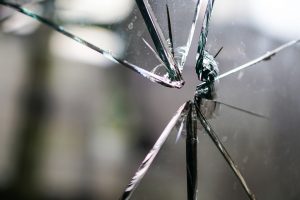 Burglaries are very common in South Africa although houses and duplexes are targeted much more than apartments since there are many people around and it is easier for someone to see the crime taking place and alert the police. That being said, even if you are renting an apartment you must always lock all of your doors and windows when leaving the apartment and even when you are at home.
Burglaries are very common in South Africa although houses and duplexes are targeted much more than apartments since there are many people around and it is easier for someone to see the crime taking place and alert the police. That being said, even if you are renting an apartment you must always lock all of your doors and windows when leaving the apartment and even when you are at home.
If you live in a shared house you must ensure that you lock the door to your room when leaving to avoid having your valuables stolen. Even if you are inside the apartment or room you should always keep your door locked.
If you live alone, this is a whole different ball game and you need to be aware of the safety measures you need to take. I have written an article on safety for people who live alone and you should read through this and absorb the information contained therein.
- Hi-jackings
Most hi-jackings in South Africa occur in the driveway of the victim. If you have a car this is one of the things that you need to be aware of. Never drive into your driveway if there are any people or vehicles in the vicinity. Always make sure that your electric gate closes fully behind you before you get out of your vehicle. What typically happens with hi-jackings is that distracted drivers pull into their driveways and are attacked by robbers with firearms.
- Storing your Valuables
As mentioned, it is never a good idea to keep large amounts of cash in your place of residence and, you should always make payments to your flight school and accommodation immediately upon receiving funds. If you do keep cash at home you must store this in a very safe place – preferably a safe or a very good hiding place. You travel documents, jewellery and electronics must also be safely hidden or stored.
- Security Companies
There are many security companies in South Africa which provide private security services to individuals, homes, complexes and businesses at a monthly fee. Any home alarm system (which includes an electric fence), will usually be connected to a security company that will drive out to your premises should an alarm go off. This is a very handy service to have and can save your life. Always ask your landlord or caretaker for the name of your security company and their emergency telephone number.
If you plan on arriving home late you can, and should, ask your security company to send a vehicle to wait for you and ensure that you get home safely. Many of these security companies will also provide panic buttons both inside the home and mobile panic buttons that look like gate remotes.
If you are lucky enough to have these always keep them on your person and be prepared to push the button should anyone follow you into your driveway or attack you. If you have an alarm system – USE IT! Never give your alarm code to anyone and always ensure that you set the alarm before leaving your home.
Part 5: Financial Crimes, Banking and Foreign Exchange Safety
- Opening a Bank Account as a Foreign Student in South Africa
 I recommend that you open a South African bank account as soon as possible after arrival. Not only will this make it easier for you to manage your money, pay study fees, receive money from abroad and pay your rent and other living expenses but, it also makes sense from a safety and security standpoint. Carrying cash and particularly, large amounts of cash, can be very dangerous and may make you a target for robbery, hijacking and fraud. All major shops such as Pick n Pay, Spar and Checkers, petrol stations like Sasol, Shell, Engen and BP as well as all restaurants and fast food chains have card machine facilities which you should use.
I recommend that you open a South African bank account as soon as possible after arrival. Not only will this make it easier for you to manage your money, pay study fees, receive money from abroad and pay your rent and other living expenses but, it also makes sense from a safety and security standpoint. Carrying cash and particularly, large amounts of cash, can be very dangerous and may make you a target for robbery, hijacking and fraud. All major shops such as Pick n Pay, Spar and Checkers, petrol stations like Sasol, Shell, Engen and BP as well as all restaurants and fast food chains have card machine facilities which you should use.
We have six major banks in South Africa these are:
- First National Bank (FNB)
- ABSA
- Standard Bank
- Nedbank
- Capitec
- African Bank
To open a bank account with any of the above listed banks you will need the following documents:
- a letter from your university, flight school or college that confirms that you are a student at their learning institution
- a certified copy of your passport
- a certified copy of you study visa
- proof of address which you can get from your landlord
If you have to deal with cash and, more specifically, exchange foreign currency, you should always keep the money in safe place and exchange it only in a very secure environment. Once you have exchanged the cash always deposit the money into your bank account immediately. You should always pay your rental and study fees immediately and place the rest in a safe place. Do not keep large amounts of cash on your person or at your accommodation.
- ATM Safety
When depositing cash at an ATM or withdrawing cash you must always be hyper vigilant and aware of what is going on around you. Here are some critical steps to take when using an ATM:
- Never give your pin number to anyone
- If you see any device protruding from an ATM, do not insert your card and use another ATM
- Do not offer to assist anyone that asks you for help
- Do not accept assistance from anyone at an ATM – if you need help you must go into the bank itself
- Always ensure that there is no one standing close to you when you are using an ATM as they may be trying to steal your details
- Safety Online
 Phishing and online crimes are a reality when it comes to security in South Africa and you must always use common sense and caution when transacting online. If you are not 100% sure that a certain website is safe and secure – do not use it or enter your personal information. Do not comply with any telephonic or email requests for you to secure your computer or bank account by clicking on links or downloading any software onto your computer.
Phishing and online crimes are a reality when it comes to security in South Africa and you must always use common sense and caution when transacting online. If you are not 100% sure that a certain website is safe and secure – do not use it or enter your personal information. Do not comply with any telephonic or email requests for you to secure your computer or bank account by clicking on links or downloading any software onto your computer.
A South African bank will never ask you for your pin number and card details online or send you an email asking you to follow a link to change your password or details. If there is any security risk to your bank account – you can either call the bank yourself or go into a branch to have it resolved.
Part 6: Emergency Contact Numbers
I will provide you with a summarized list of all the emergency numbers that you need to know below but, there are a few important details regarding emergency services in South Africa that you MUST be aware of. The police, medical emergency (ambulance) and fire departments each have separate telephone numbers.
This may make it hard for you to remember the number of the service you need. You can, however, call a toll free emergency number from your mobile phone and you will be put through any emergency service call center. If you remember only one telephone number it should be 112.
Police response is generally quite good across the country however, delays are very often reported. You must know your address and be able to clearly relay this to the operator as you will not be able to receive assistance if you cannot. This is why it is crucial that you know your address by heart and are able to clearly spell out the name of your street and suburb.
When calling for an ambulance you must state whether or not you have medical aid. If you do not have a medical aid (which you should have as a student) the operator will dispatch a government ambulance and will take you to the nearest local government hospital. If you have medical aid a private ambulance will be dispatched and you will be taken to the nearest private hospital.
I recommend that you obtain student medical cover in South Africa not only so you can benefit from inclusive check-ups but so that should any medical emergency occur you will benefit from the high quality care and treatment offered by the private medical care industry. There is nothing wrong with government hospitals but, as with any public service, it is overburdened and you may find yourself facing delays and a lack of service as resources are scarce.
Prior to arriving in South Africa you must write down (and memorize) the following numbers:
Toll-Free Emergency from your mobile: 112
Police: 10111
Ambulance: 10177
You should also have the following numbers in-hand:
- Your National Embassy in South Africa
- Your Landlord or rental agency
- A tow truck service and road side assistance company if you have a car
You can download a printable version of all the South African Emergency Numbers you need on this website – keep it somewhere you can easily see in an emergency and copy them onto your mobile phone as well.
Part 7: Further tips on safety and security in South Africa
- A little bit of common sense goes a long way. Even if you come from a country where there is very little crime – or perhaps no violent crime at all – you will still be able to draw on common sense to keep you safe. If something does not “feel right” then it probably isn’t. Always be aware of your surroundings and be careful who you trust. Some of the most preventable crimes occur simply because people chose to trust a stranger.
- There is safety in numbers. While studying in South Africa you will undoubtedly make friends with fellow students. You must use this to your advantage and try to, whenever possible, stick with your group of friends. Whether you are going out for the night or walking to your university or place of study.
- Try to avoid driving around or walking around at night – rather go shopping, fill up your fuel tank and visit friends during the day. Many criminals operate in the late hours of the night and early hours of the morning as they are less likely to be spotted.
- If you’re a female and are likely to use public transport, drive alone or walk to and from your accommodation alone you should consider purchasing pepper spray. It is legal to carry pepper spray and use it in self defense in South Africa.
- Always make sure your mobile phone is charged and that you have sufficient airtime (credit) on your phone to be able to place a call.
- Always let someone know – whether it’s a roommate, friend or family member back home, if you are going out and when they can expect you to return.
- You must give your family members your address, the address of your learning institution as well as their telephone number and a telephone number for your landlord, rental agency or a roommate or friend so that they can contact someone should they be unable to contact you.
- You should be organised and confident. If you’re walking around looking scared, lost and unorganized you will be more likely to attract criminals as you will be marking yourself as an easy target. Be confident and make sure that no matter what you are doing or where you are going you behave in a confident manner.
If you want more tips and information on tourist safety in South Africa please go through the other safety and security articles I have posted on this website in the blog section. If you found this guide to be useful, or you think I’ve left something out, please leave a comment below!
